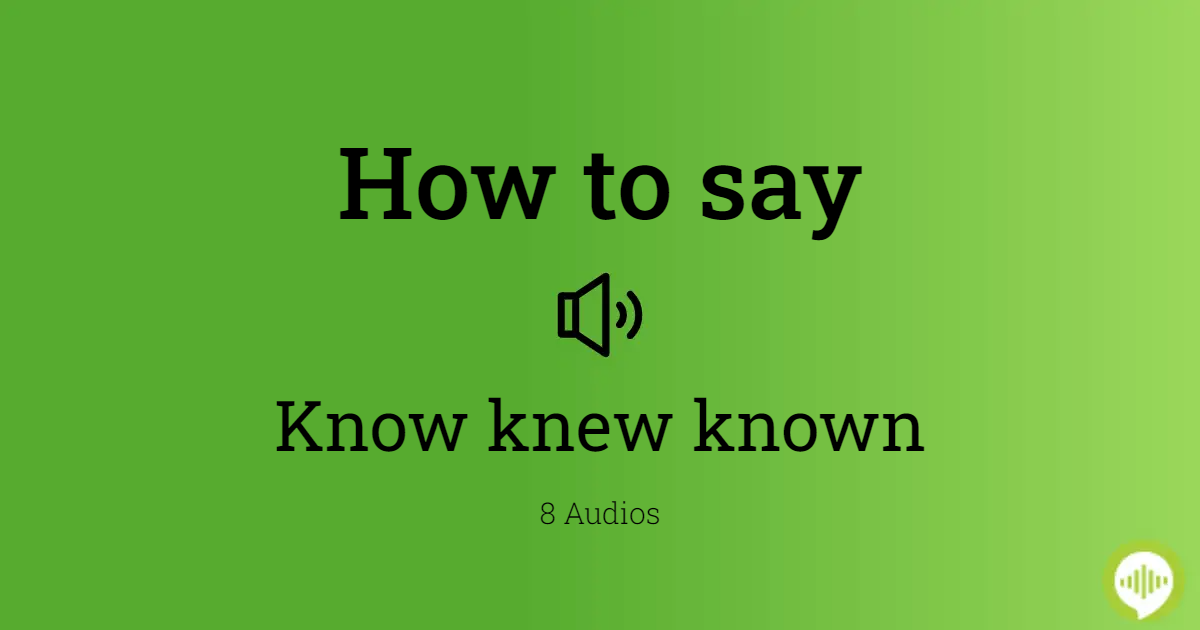
How to pronounce Know knew known
Conjugación verbo know - inglés X Inglés Conjugar Herramientas: Modelos Inglés británico y americano Verbos auxiliares y modales Verbos irregulares know saber; conocer; entender;. Infinitive to know Preterite knew Past participle known Modelo : grow Auxiliar : have, be Otras formas: know oneself / not know Contracciones Publicidad Indicative

3 формы глагола KNOW KNEW KNOWN
The excerpt below is taken from Advanced Grammar in Use:. We can use will to draw conclusions or state assumptions about things that are the case now.. You will know that Ewan and Lucy are engaged. (= I assume you already know) The writer's explanation given in parentheses, in my view, implies that the the person that the person being spoken to (which the pronoun you refers to) knew about the.

Know Verb Forms Past Tense, Past Participle & V1V2V3
know my sheep, and am known of mine, John 10:14. As the Father knoweth me, even so know I the Father, John 10:15 . when Jesus knew that his hour was come, John 13:1 .

Know Clip Art Free Images and Photos finder
To Know Conjugation; To Know Infinitive: to know Gerund: knowing Past participle: known Simple past: knew Irregular forms Auxilliary verb Spelling change Use contractions. Positive Negative. Indicative. Positive Negative. Present. I know I know: you know you know: he/she/it knows he/she/it knows: we know we know:

If I knew then, what I know now!!! YouTube
Know/Knew/Known. She should know all of the answers to your questions. I can't believe she knew the entire history of the manor. Had I known how great the tour was, I would've come sooner. Give/Gave/Given. Troy always thought it was better to give than receive. Troy gave most of his bonus to charity.

Know Past Simple, Simple Past Tense of Know, V1 V2 V3 Form Of Know Know
Present. I would know. you would know. he would know. we would know. you would know. they would know.
.webp)
Know, Knew, Known Which is the Correct the Past Tense and Past
know (third-person singular simple present knows, present participle knowing, simple past knew or (nonstandard) knowed, past participle known or (colloquial and nonstandard) knew) ( transitive) To perceive the truth or factuality of; to be certain of or that. 1985 April 17, Frank Herbert, 15:46 from the start, in Frank Herbert speaking at UCLA.

Knowing Me Knowing You The Complete Radio Series BigaMart
knew ˈnü also ˈnyü ; known ˈnōn ; knowing Synonyms of know transitive verb 1 a (1) : to perceive directly : have direct cognition of (2) : to have understanding of importance of knowing oneself (3) : to recognize the nature of : discern b (1) : to recognize as being the same as something previously known (2) : to be acquainted or familiar with (3)
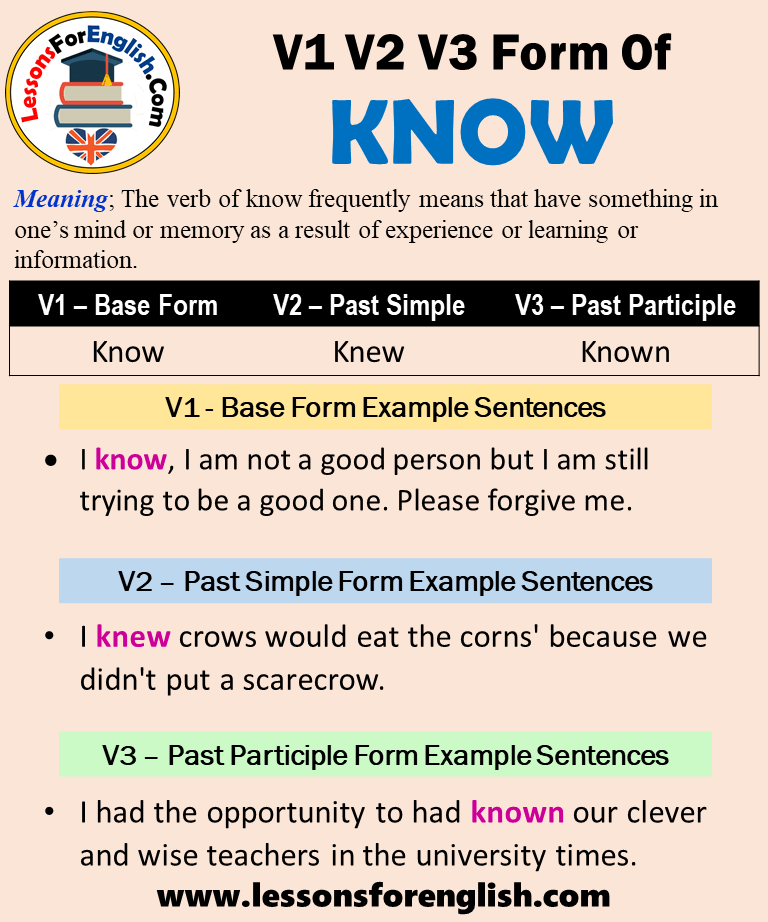
Past Tense Of Know, Past Participle Form of Know, Know Knew Known V1 V2
'Know' is the present tense, 'knew' is the past tense form, and 'had/have known' is the past participle form of the verb. Last updated on December 6th, 2023 at 10:03 pm Contents What is the past tense of 'know'? Conjugations of know: What is the past tense and participle of know? Examples of know in the present tense (in sentences)

Conjugación Know 🔸 Verbo inglés en todos los tiempos y formas
Dictionary entry overview: What does know mean? • KNOW (noun) The noun KNOW has 1 sense:. 1. the fact of being aware of information that is known to few people Familiarity information: KNOW used as a noun is very rare. • KNOW (verb) The verb KNOW has 11 senses:. 1. be cognizant or aware of a fact or a specific piece of information; possess knowledge or information about
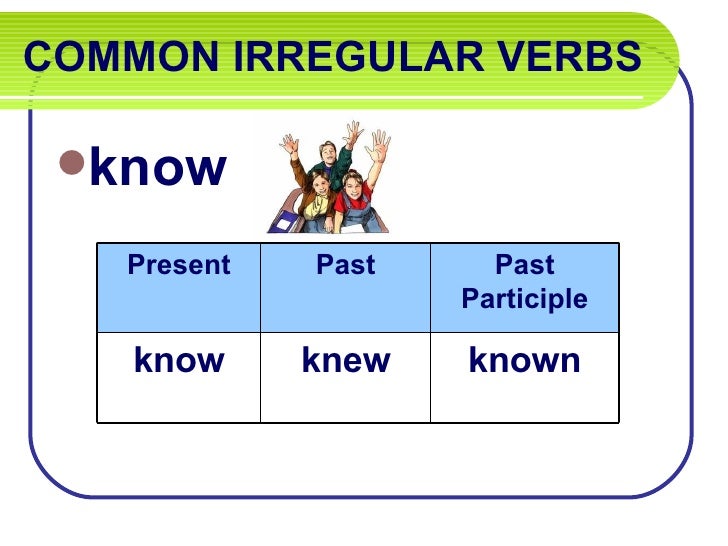
Verbs Irregular 2
Present. I would know. you would know. he, she would know. we would know. you would know. they would know.
AGIKgqPNL9vIeEZjVeRjlzkHEJdkNpbT74t7kULgSk=s900ckc0x00ffffffnorj
1 [ noh ] show ipa See synonyms for: know knew knowing known on Thesaurus.com verb (used with object),knew, known, know·ing. to perceive or understand as fact or truth; to apprehend clearly and with certainty: I know the situation fully.
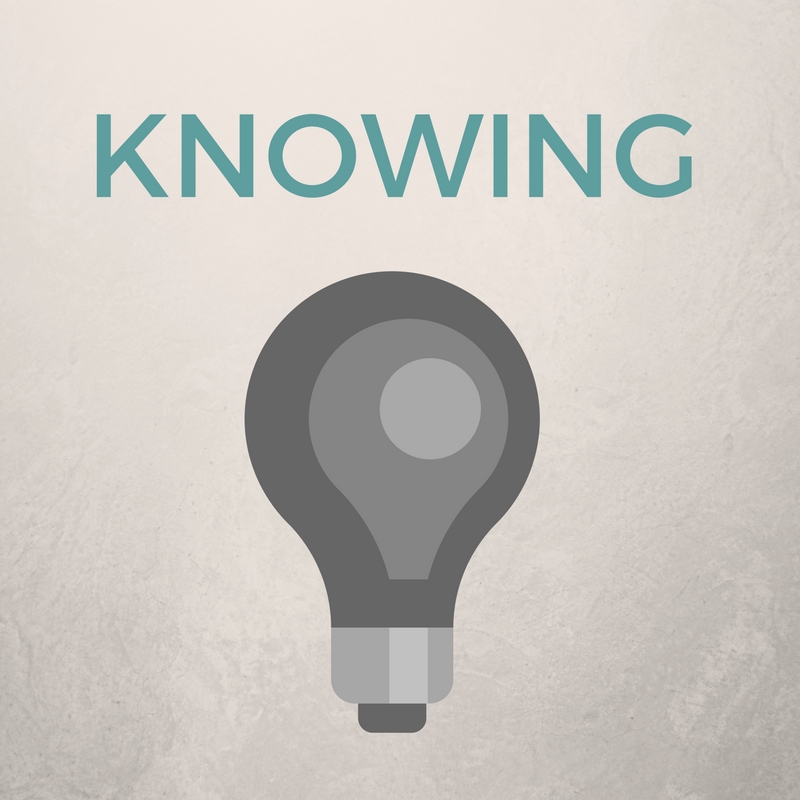
Knowing Faith and Reason, Part One Mary Jo Sharp
Clarifying "Knew" vs. "Known" Through Real-Life Examples. The distinction between "knew" and "known" can be understood better by examining real-life usage examples. By doing this, proper application of these verb forms in everyday communication will become clearer. Let's dive into a few examples to truly grasp their correct use.

Irregular Verbs With Pictures
[transitive, intransitive] to have information in your mind as a result of experience or because you have learned or been told it know something No one knows the answer. I need to know your name. The truth about what happened is not yet known. All I know is that she used to work in a bank (= I have no other information about her). know (that)…
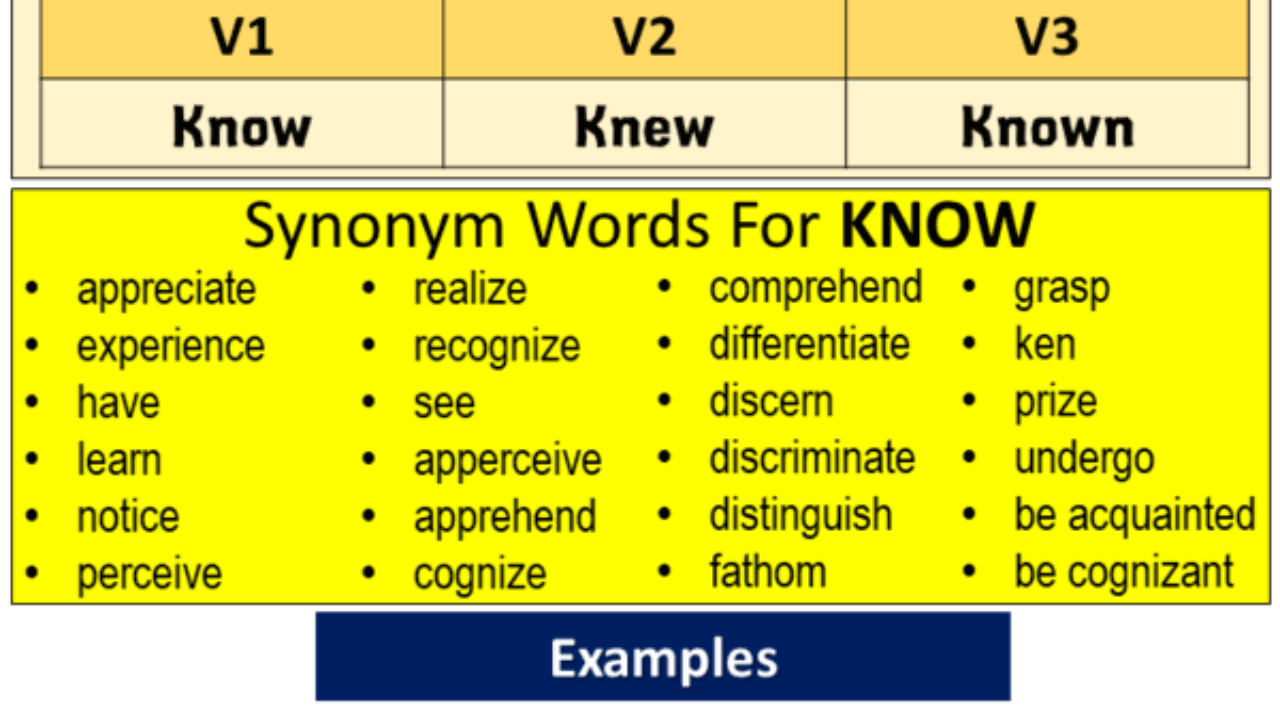
Cognizant verb
Know - English Grammar Today - a reference to written and spoken English grammar and usage - Cambridge Dictionary
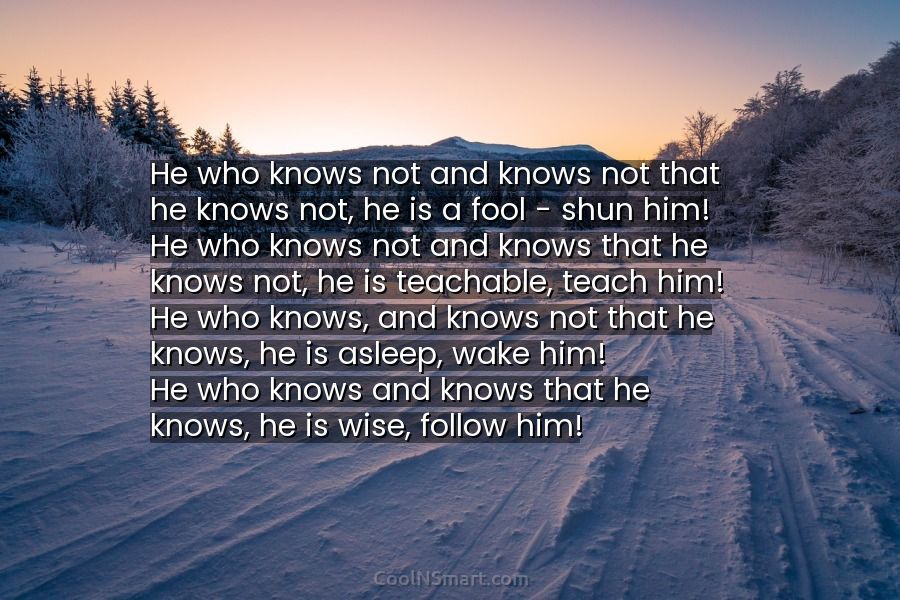
Quote He who knows not and knows not that he knows not, he... CoolNSmart
Grammar Reference Irregular Verbs List Definition: To Know Irregular verb: To Know Verb conjugation: Know - Knew - Known Meaning of 'To Know' To be acquainted with To have correctly in your memory Conjugation of verb 'Know' Irregular Verbs Following a Similar Pattern Verbs like: Want to learn about the irregular verb 'to Know'?